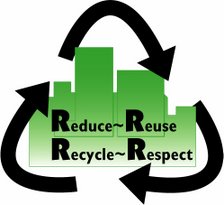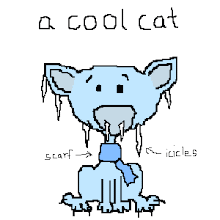Look at Darfur situation with both eyes
By SHAHANAAZ HABIB
Journalists on a trip organised largely for the Intelligence Communities of African Countries had Sudanese officials telling them that the situation in Darfur was actually improving - contrary to what the West has been saying.
http://thestar.com.my/news/story.asp?file=/2007/6/8/nation/17963942&sec=nation
-The Star Friday,8th June 2007
hmm.i had a chat with a friend the other day and he told me that sometimes what's told over mass media might not necessarily be the truth.They might not be lies either but sometimes we do not get the whole picture of the story,just pieces of what they want us to know.Sometimes what we get on the news are pieces of manipulated stories that are used to somehow benefit a certain party.It is undeniable how bias some television or other form of media networks can be,and for us who depend so much on them for the latest info,well,that is really unfortunate for us.So,how do we filter the things that we get?Hmm
Friday, June 8, 2007
Tuesday, June 5, 2007
Monday, June 4, 2007
World Environment Day - 5th June 2007
UNEP World Environment Day 5 June 2007
With the slogan Melting Ice - A Hot Topic it is obvious that the main issue this year is climate change.With leaders around the country taking up the call to fight issues like global warming it looks like things are actually looking up.But is it too late?Already we are being warned of potential catastrophes,the ice caps are melting,unpredictable weather conditions,etc.But to some global warming is still a myth.I personally feel that everyone should contribute,even the smallest action counts.We are the ones destroying the planet and it is up to us to save it.Already we are dumping our waste into the waters,and just because we've found another habitable planet does not make it ok to pollute and not care about the one we're living on.Personally i feel i have a long way to go to being an environmental friendly person,but i feel that if we could only make it a priority in our lives,then we can all work together to save the Earth.Lets just remind ourselves to take care of what we have right now,rather than regret in losing it in the future.And that future might just be around the corner.
DO’S AND DON’TS TO HELP THE PLANET
Energy Savings at Home
People all over the world are taking measures to reduce the greenhouse gases emitted as a result of the way they live. Using less energy not only helps the planet, but also saves money on household bills.Turning the heating thermostat down, and the air conditioning up, by 1.5°C (3°F) saves around 1 tonnes of CO2 (carbon dioxide) a year. An energy-efficiency refrigerator could save nearly half a tonne of CO2 a year, compared with an older model. Insulating windows, doors, and electrical outlets and adding more insulation to the attic and basement reduces energy consumption.Compact fluorescent, spiral light bulbs are 75% more efficient than standard light bulbs
Energy Savings on the Road
Walking, cycling, using a car pool or taking public transport, all produce fewer emissions than those emitted by a single person in a car.Choosing the most efficient car available, such as a hybrid gasoline-electric model, and keeping any car well maintained, will reduce emissions.Sharing a car and avoiding short journeys by car, saves energy.Keeping tires optimally inflated uses less fuel and cuts down emissions.Driving at 5 mph below the speed limit over an 8-mile commute to work saves 350 kg of CO2 per year.
Reducing Garbage
On average a person throws away 10 times his or her bodyweight in rubbish per year. One kilogram sent to landfill produces 2 kg of methane. The simplest way of reducing this burden is to buy and waste less unnecessary packaging.Recycling paper, glass, aluminum, steel and other materials to produce "new" materials, can make energy savings. Using both sides of the paper and recycling it can save 2.5 kg of greenhouse gases for every kilogram of paper used.
Becoming Carbon Neutral
After reducing emissions as much as possible, people become carbon neutral by "offsetting" the rest. They purchase "carbon credits" to channel their money into projects leading to a reduction in emissions. With details of the activity or fuel use to be offset, the organization calculates how many carbon credits need to be bought. Cost of credits varies, but is around $10/£7.50 per tonne of CO2.
Advocating Change
Individuals can encourage larger communities to act on climate change. For example:
• Workplaces and schools: encourage co-workers or fellow students to adopt strategies that reduce missions;
• Companies and governing bodies: lobby management to invest in energy conservation measures, or renewable energy;
• Pressure groups and local government representatives: advocate local action. See Cities for Climate Protection programme: www.iclei.org/co2/;
• Corporations: encourage evaluation of their contributions to the greenhouse effect and point them to the many success stories and available toolkits;
• Government: lobby ministers to take actions to reduce emissions and plan adaptation options.
Source: The Atlas of Climate Change – Mapping the World’s Greatest Challenge
"The day's agenda is to give a human face to environmental issues; empower people to become active agents of sustainable and equitable development; promote an understanding that communities are pivotal to changing attitudes towards environmental issues; and advocate partnership, which will ensure all nations and peoples enjoy a safer and more prosperous future. World Environment Day is a people's event with colourful activities such as street rallies, bicycle parades, green concerts, essays and poster competitions in schools, tree planting, as well as recycling and clean-up campaigns."
Subscribe to:
Posts (Atom)









